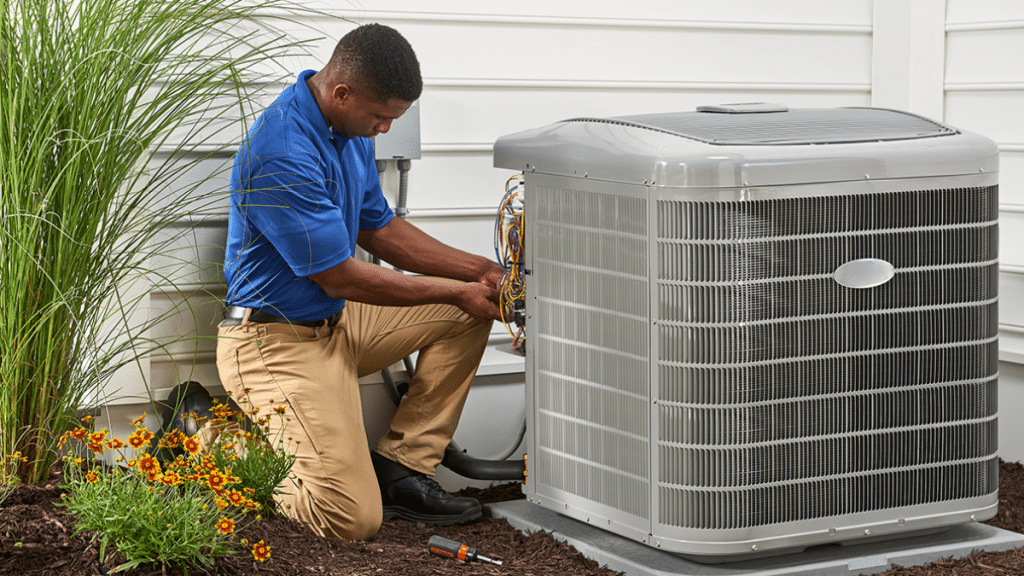Selecting the right heat pump is crucial for maintaining comfort and efficiency in a home. This decision impacts energy consumption, costs, and overall climate control. Understanding how to size a heat pump correctly can lead to improved performance and satisfaction.
Understanding Heat Pumps
By moving heat from one place to another, heat pumps are both an energy-efficient heating and cooling option. A heat pump installation in Toronto utilizes the outside air to draw out warmth and transfer it inside during the cooler months. During the summer, the process reverses by extracting heat from the home and releasing it outdoors. That dual ability gives them the potential to be a versatile option for controlling the climate year-round.
Why Proper Sizing Matters
There are several reasons why selecting a heat pump of the correct size is essential. A pump that is too big will turn on and off again soon, which means plenty of wear and tear, which can reduce the lifespan of the equipment. Also, it can cause cold and hot spots and high utility bills. Conversely, if your pump is too small, it will have difficulty achieving comfortable indoor temperatures, particularly in hot or cold weather.
Factors Influencing Heat Pump Size
The correct size heat pump for your home depends on several factors. These range from the space’s square footage to the layout, the insulation quality, and even the local climate conditions. Knowing these aspects can help you decide.
Square Footage and Layout
Home size is a considerable factor in heat pump size. Higher-capacity units are necessary to cool larger areas. However, the layout also has a prominent role to play. You might have to take additional precautions if you live in a home with several different rooms, but an open floor plan could promote healthier air flow.
Insulation Quality
Consider insulation versus heat retention of the house. Since insulated spaces are easier to keep hot or cool, a smaller heat pump may do the trick. In contrast, homes with leaky insulation may need a larger unit to compensate for lost heat.
Local Climate Conditions
Your heat pump choice depends on your area’s climate. If your winters are mild, a smaller unit would work. However, a more powerful system may be necessary for efficiency and comfort in extreme cold areas. You must also factor in the heating and cooling you need into your chosen unit.
Calculating the Correct Size
You can determine the appropriate size by calculating the heating and media load of the home. This method takes everything into account: square footage, insulation, and climate. This calculation yields the output in BTUs, or British Thermal Units per hour, thus determining how much capacity is necessary to maintain comfort.
Consulting Professionals
Homeowners must do their research, but they should also consult a professional. These experts have the resources, tools, and experience to assess correctly. They can make personalized recommendations, which help ensure that the heat pump they choose adequately meets your specific requirements.
Energy Efficiency Considerations
Choosing an energy-efficient model is beneficial for both the environment and the wallet. High-efficiency units consume less energy, which reduces utility bills. When selecting a heat pump, look for models with high Seasonal Energy Efficiency Ratio (SEER) and Heating Seasonal Performance Factor (HSPF) ratings. These ratings indicate better efficiency and performance.
Installation and Maintenance
Choosing the right size is only half the battle—you must know how to install them correctly. If you install the unit incorrectly, it can create inefficiencies and lead to breakdowns. Qualified technicians must carry out this installation process to ensure optimal outcomes. Heat pumps require regular maintenance, such as cleanings and inspections, to continue performing well and last long.
Benefits of Correct Sizing
There are many advantages to an accurately sized heat pump, as this will provide homeowners with consistent temperatures, lower energy costs, and longer system life. Aside from the weather outside, which can be unfavourable to our homes, heat pumps ensure continual comfort, regardless of the month or season. Moreover, the heat pump’s well-established functioning helps lower the carbon footprint, thereby assisting with environmental sustainability.
Conclusion
A heat pump’s size is critical to ensuring your home can function comfortably and adequately. Homeowners can then use square footage, insulation, and climate data to make the right decision. The advantages of consulting professional services to ensure energy efficiency are even more pronounced. However, if sized and installed correctly, a heat pump will save money and perform consistently for many years.
